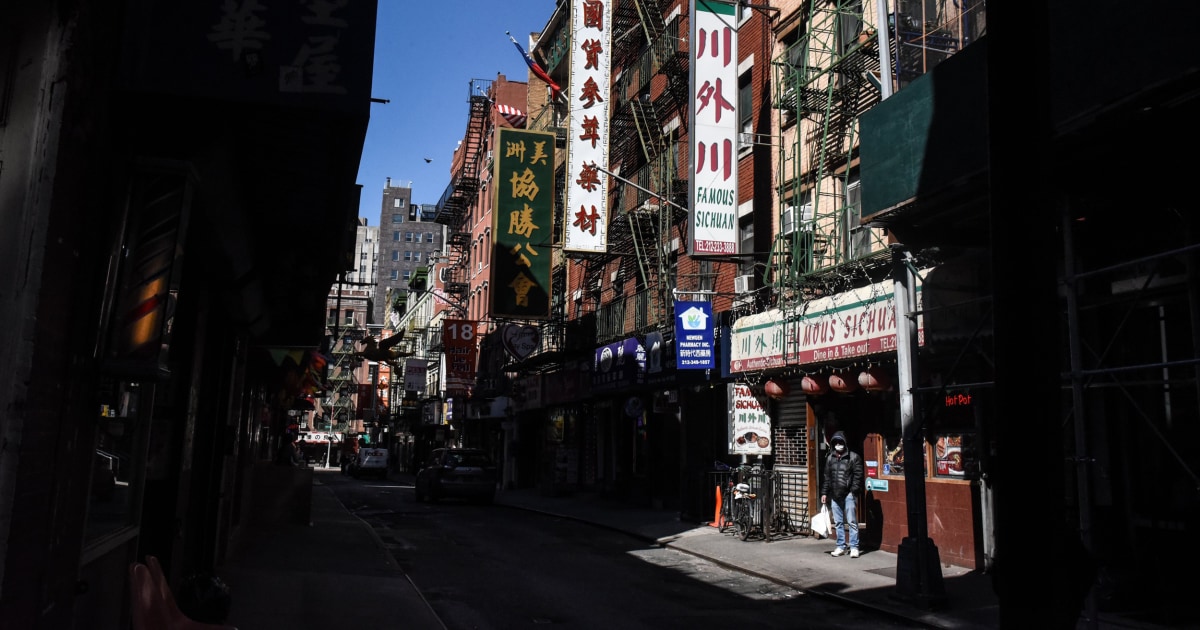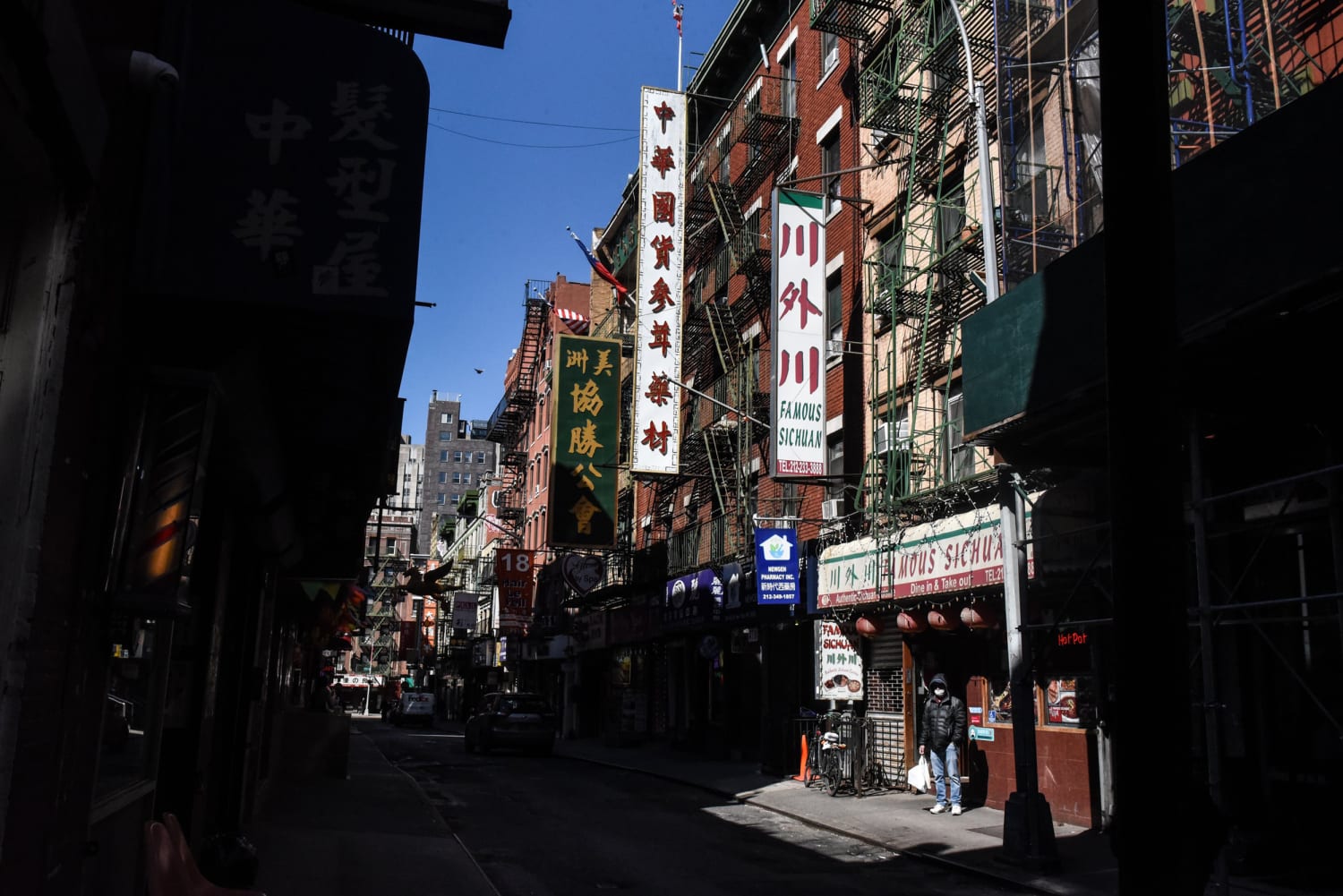
The coronavirus pandemic has transformed 2020 into the deadliest year in U.S. history, and in turn, it has ravaged industries and regions large and small — particularly the restaurant business. In September, a National Restaurant Association survey in September revealed that at least 100,000 restaurants have closed permanently or for the long term, and now that number is estimated to be closer to 110,000.
As the pandemic started picking up in the U.S. in the spring, so did anti-Asian rhetoric, discrimination and racist attacks. In March, restaurants in Chinatowns from San Francisco to New York reported as much as an 80 percent loss in foot traffic, triggering Chinese restaurant closures and accelerating what some have been warning about and fearing a steady decline of historic Chinatown districts that won’t be able to fully recover when the pandemic subsides.
It’s this fear — of the loss of an important history and not just beloved businesses — that has been motivating cookbook author Grace Young for the past nine months.
“I’m a cookbook author. I have no experience as an advocate, or an activist, I have never in my entire life, done anything like what I’ve been doing in the last nine months,” she told TODAY Food. For the majority of 2020, Young has turned into somewhat of a one-woman PR rep for Chinatowns, and in late October, she launched a social media campaign called #SaveChineseRestaurants to inspire more people to support their local Chinese eateries and communities around the country.
Young credits Cook’s Illustrated editor-in-chief Dan Souza for the idea for #SaveChineseRestaurants. When Souza reached out to Young to be interviewed for a story in the magazine earlier this year, she asked if they could do a story about Chinatown.
“We need to do something to bring awareness,” she recalled. It was Souza who suggested that Young try an Instagram hashtag and campaign. Young couldn’t stop thinking about the idea and eventually decided to partner with the James Beard Foundation to bring it to life.
“I had been admiring the program that the Beard Foundation has been doing, Open for Good and so I approached them,” Young, who is a two-time Beard Award winner and has served as a judge for the foundation’s cookbook awards, said. “I was a little shy about approaching them but a friend of mine said to me, ‘You have nothing to lose.’ And I thought, ‘You’re right.’ And I just feel like the Chinese restaurant community and the Chinese business community, all these immigrant merchants and workers and owners, they have no voice. … I thought the only thing that can help is to actually bring awareness and hopefully with awareness, people will show up.”
The #SaveChineseRestaurants currently has over 830 tags on Instagram, and chefs and cookbook authors like J. Kenji López-Alt, Cathy Erway, Ellie Krieger, Ruth Reichl and Andrew Zimmern have helped to spread the word. But it also has inspired regular Instagram users to take note, like user @rebelg20005, who posted that they did their part to support Chinese restaurants with a 60-mile drive for takeout in Wisconsin.
Clare Reichenbach, CEO of the James Beard Foundation, told TODAY that the nonprofit recognized that Chinese restaurants have been disproportionately affected by the pandemic.
“I think it’s this compounding nature of not only are they undergoing all the downward pressures and challenges that COVID and the recession are bearing down across restaurants across the land, but also this xenophobia and the racist response in terms of the rhetoric around COVID that we were really keen to counter,” she said.
“A lot of these are very small mom-and-pop restaurants haven’t had the tech or the infrastructure to do a lot of the pivots that have been required at this time. … 43 percent of Chinese restaurants currently are cash only. So pivoting to apps, e-delivery, e-payments and e-cards, everything in that regard that is part of the armory that we’re seeing restaurants (use as) part of their survival toolkit is … harder for this group,” she continued. ” … The contribution that Chinese restaurants and that whole immigrant story adds to the culinary culture of this country is just critically important from our perspective to do what we can to preserve that.”
Young described the situation for many Chinese restaurants as a crisis that needs to be addressed immediately.
“In February, I wrote a piece for Food and Wine magazine where I said that Chinatown was on life support. I would say right now, Chinatown has just gotten its oxygen taken away from it,” she said.
At the same time, she said, “But I do feel optimistic. Chinatown is like your old grandmother or grandfather that you love so much and I really do believe that when you show up and you show that you care, that that makes a huge difference. And that is something about spirit that can’t be defined.
“These legacy businesses are really the heart and soul of Chinatown. And that’s what gives Chinatown so much character. And when we think about Chinese restaurants, it’s not just a place to eat, but it’s, these places, from restaurants to stores to bakeries, hold our memories. … So I think that we have to try and protect these old businesses that have made Chinatown what it is. And … they’re just irreplaceable.”
“Three restaurants (in New York City’s Chinatown), Wo Hop, Hop Kee and Hop Lee, they’re so old school,” she added. “We used to have restaurants like that in San Francisco, and they have completely disappeared. So, I know if we lose them, there will never be another one like that, and (if there was) it would be a full replication that doesn’t even come close. Those cooks know a way of cooking that’s like nothing else, and if we lose those cooks, nobody will ever be able to find them again.”
“I think that people also forget that San Francisco and New York’s Chinatowns are historic immigrant communities and they tell the story of America,” Young continued. “And if we allow these businesses to go without a fight, and therefore the small landlords can’t pay their mortgages or they can’t pay their property taxes, this is what opens the door for gentrification.
” … I was born and raised in San Francisco and spent a lot of time when I was a child in San Francisco’s Chinatown, and I can’t even speak about what I’m reading and hearing about what’s happened to San Francisco Chinatown. So, it’s very personal. And it’s really just heartbreaking to think of America, without San Francisco and Manhattan’s Chinatowns.”
If you’re interested in participating in the #SaveChineseRestaurants campaign, you can order from a Chinese restaurant nearby, post to Instagram a photo of your favorite dish, include #SaveChineseRestaurants in the caption and tag friends, family members and others to share their own photos and stories with the hashtag. Any posts that are tagged with @beardfoundation may be reposted by the nonprofit.
This story was originally published on TODAY.com.
Follow NBC Asian America on Facebook, Twitter and Instagram.
Source: | This article originally belongs to Nbcnews.com









